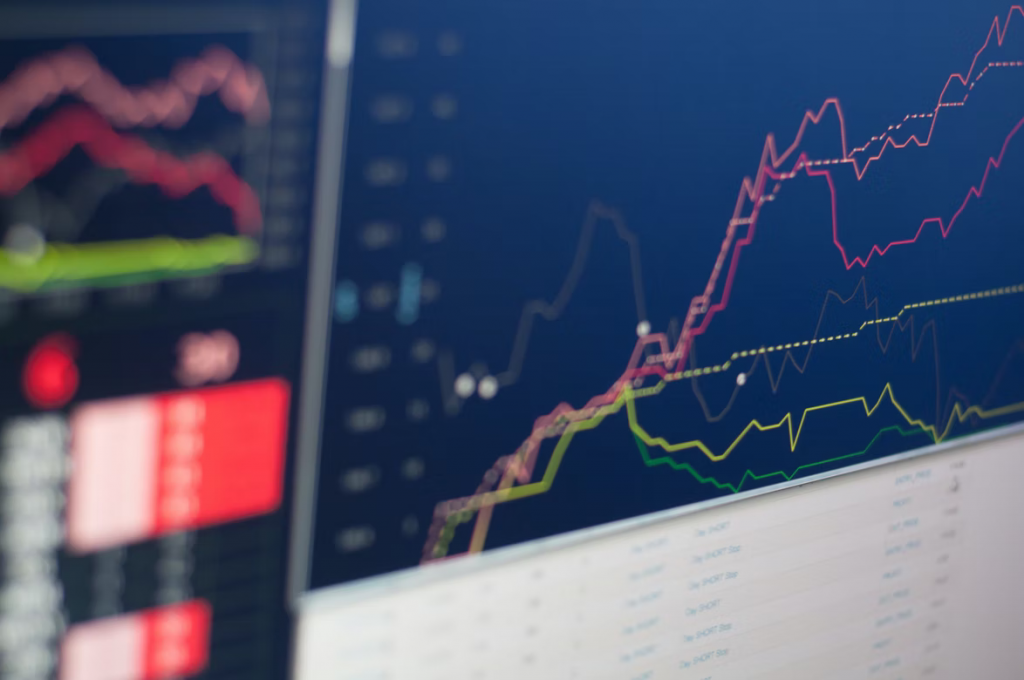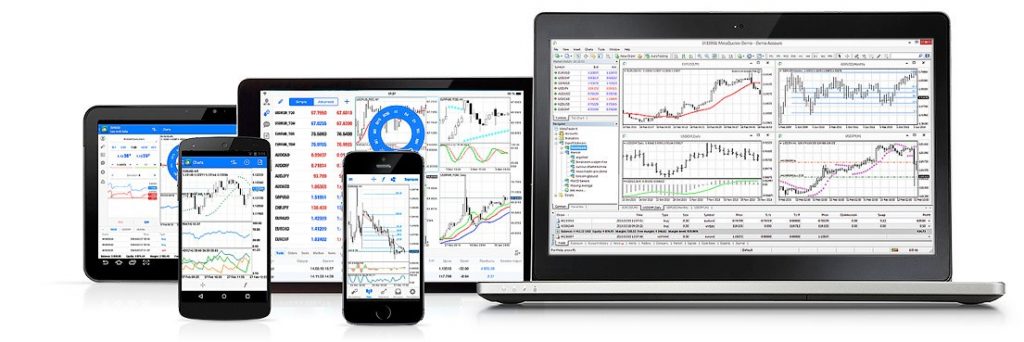Digital Options – Tutorial & Brokers



Digital options are popular derivatives that are used to speculate on the price movements of a wide range of assets and equities. These contracts are a simple type of instrument, making them popular with new traders. This 2026 investing guide will outline the meaning of key terms, explore the derivative’s history and review the pros and cons of digital options trading. We also explain how to choose the best brokers.
Binary Options Brokers for United States










Digital Options Explained
A digital option is a type of financial derivative contract that uses simple statements to inform the success or failure of speculation. The assets often follow the form of “the value of asset X will be above/below $Y (the strike price) at time Z”. If a trader predicts that this statement would be correct, they will purchase a call option. If they think the opposite will be the case, they would purchase a put option. When time Z is reached, the outcome will be automatically decided and credited or debited from their account.
The formula used to price a digital option will take into account various factors, including how close the current share price is to the strike price, the volatility of the market and the length of time until the contract expires. The pricing of digital options is always between $0 and $100.
As there are only two possible outcomes, the potential profit and loss are known from the moment the trade is executed. If the option ends in the money (successfully), the closing price is set at $100. Your profit is then calculated from the difference between the purchase and closing prices, multiplied by how much you stake per point of movement. If the opposite is true, it closes at $0 and the same calculation is carried out to determine your loss.
Sometimes, it is also possible to close the trade before the expiry time. This allows you to lock in any profits or get out if the market is moving against you.
Worked Example
Consider a digital option contract that states that the share price of Apple will be above $173 at 13:00 UTC. If there is one hour until the contract expires and the share price of Apple is at $175, the likelihood of the contract ending in the money is quite likely.
A trader could then buy the contract for $70, staking $5 per point of movement. If the statement is correct, the profit will be $30 ($100-$70) multiplied by $5 (the stake per point of movement), which would total $150. If the statement is incorrect, the loss would be $70 ($70 – $0) multiplied by $5, which would total $350.
In this example, the potential loss is greater than the potential reward because the broker predicts that the statement is more likely to be correct than incorrect.
Digital Options Vs Binary Options
A key distinction between digital options and binary options is that you can often manually choose the strike price with the former. This gives you more flexibility and is also a benefit in terms of risk management as you may wish to choose a strike price that is close to the current market price to reduce risk.
Traders can often also choose the length of the contract. This may be dependent on the exchange you trade on, though standard digital options are 5 minutes in length. Some platforms offer digital options with a duration of up to one month – a more attractive timeframe, perhaps, for swing traders.
History
This type of trading is a relatively new phenomenon – it only became more popular around 2008. While similar financial instruments existed before this, they were mainly used by institutional and high net-worth investors, rather than retail traders. Despite the market still being heavily regulated today, many retail traders around the world speculate using digital options.
Types of Digital Options
So far, we have only explored a simple example of a digital options contract. However, there are many types of digital options, giving traders more choice and refinement. Other types of contracts include:
- Dual – Digital options on two currency pairs (or instruments) at once, where both strike prices must be met at expiry.
- Hi/Lo – Predict the range for the market’s daily high or low.
- Target – Receive a payout if the market price finishes within two pre-determined strike prices.
- Tunnel – Similar to target digital options but the payout is only received if neither strike price is hit at any point.
- Ladder – Lock in profits at certain values on the way to the strike price. These can reduce risk if the final price just misses the strike price, for example.
- Up/Down – Speculate on whether the price of an asset will finish above or below the previous day’s closing price.
- One-Touch – Receive a payoff if the market price hits the strike price at any point before the expiry time, even if the price is not above the strike price after the expiry.
Advantages
Trading digital options a number of benefits:
- Accessible
- Simple premise
- No asset ownership
- Strike price flexibility
- Range of applicable strategies
- Large range of markets, including forex, stocks, gold and cryptos
Disadvantages
Investing in digital options also has several drawbacks:
- Odds often stacked against you
- Limited number of brokers
- Often likened to gambling
Strategies
Technical Analysis
Technical analysis uses historic market data and trading signals to predict future price movements. The system makes use of charts, indicators and drawing tools to spot statistical trends and patterns before buying digital options. Platforms like TradingView and MT4 offer a wide range of tools for technical analysis.
Fundamental Analysis
Fundamental analysis focuses on the intrinsic value of an asset by reviewing economic reports, company accounts, industry trends and sales growth, for example. Although the short-term nature of digital options sometimes makes technical analysis more relevant, traders should always use fundamental analysis to ensure they have a good understanding of the asset and market they are speculating on.
Scalping
Scalping is a trading strategy perfect for digital options. It is a short-term approach that looks to aggregate small profits from a large number of trades. As standard contracts are only five minutes in length, you can trade many in a single day.
Risk & Hedging
Some traders prefer a more high-risk strategy, others a risk-averse approach. With digital options, you can set your strike price and expiration time to tie in with your risk approach. For example, those adopting a low-risk system may choose a close strike price and short duration (e.g. five minutes). However, keep in mind that choosing a ‘risk-averse’ strategy with a high likelihood of success will produce smaller profits and incur higher losses, should the unlikely turn out to be true.
Another way to manage risk is by hedging digital options with other derivatives (e.g. a call spread). Strategies like these often use four common measures to assess risk: delta, gamma, theta and vega. Delta, for example, looks at the extent to which an option is exposed to changes in the price of the underlying asset. This risk management strategy is generally more suitable for experienced traders.
How To Compare Digital Options Brokers
Tools
We recommend a broker that uses a reputable trading platform or has access to appropriate technical analysis features. Much of your success will often depend on the tools you have at your disposal to properly understand and predict the market.

MetaTrader 4
Demo Account
It often helps to be able to practise your digital options strategy in a risk-free environment. Demo accounts allow you to explore new approaches, strategies, markets and assets with no danger of losing real capital. Many brokers offer demo accounts for free, though some can impose a time limit, which may hinder future development.
Fees
In addition to the cost of the digital option premium, traders need to be aware of any currency conversion charges (if the base currency of the account is different to the currency of the country you reside in) and any deposit and withdrawal fees.
Regulation
We suggest you always choose a broker that is regulated to improve your protection. This will also often provide insurance for your funds, should the broker go bankrupt. Many unregulated brokers deliberately scam retail traders, so be cautious.
Mobile App
Most brokers will have a mobile app so you can trade digital options or track the market wherever you are. If this is something you are looking to do, check it out before opening an account.
Customer Support
The best brokers will have responsive email, telephone or live chat support so they can help you should anything go wrong.
Market Regulation
Although the sale of binary options is banned in some parts of the world, including the UK, brokers like IG (an FCA-regulated broker) offer various types of digital options.
The US only permits the trading of digital options on one of three regulated exchanges: Cantor Exchange, Chicago Mercantile Exchange or North American Derivatives Exchange (Nadex).
We recommend you check the rules and regulations in your country to see what restrictions apply before you try to get started.
Bottom Line on Digital Options
Digital options are a simple way for traders to speculate on financial assets, giving a little more flexibility than binary options. The derivatives are not widely offered but several brokers in most geographical regions can offer regulated contracts. Make sure you carefully consider a range of suitable brokers and trial the contracts in a risk-free demo space before staking live money, so you fully understand the risks.
FAQ
Are Digital Options Halal?
Although Islamic accounts are common in the trading industry, there is debate as to whether digital options constitute a form of gambling, which would make them haram (forbidden). We recommend you consult your religious leader for further guidance.
Are Digital Options American Or European?
There are two varieties of digital options: American and European. The former allows you to exit a contract earlier than its expiry, rather than locking you in until the end.
How Can You Be Successful In Trading Digital Options?
While there is no guarantee of success, your chances will be higher if you choose a strategy that aligns with your risk tolerance. We also recommend you make use of any demo accounts and start with small amounts once you begin live trading.
Digital Options Vs. Binary Options: What Is The Difference?
Binary options simply involve speculation on whether the price of an asset will move up or down. Those trading digital options can set the strike price and expiry time. This provides greater flexibility and customisability. You can learn more about how binary options work by visiting BinaryOptions.net.
What Is The Definition Of Digital Options & How Do They Work?
Digital options are a form of derivative used to speculate on financial assets without physically purchasing them. At their most basic, they involve picking whether the value of an instrument will be above or below a certain value at a certain time. However, there are many types of contracts, each with slightly different rules.
